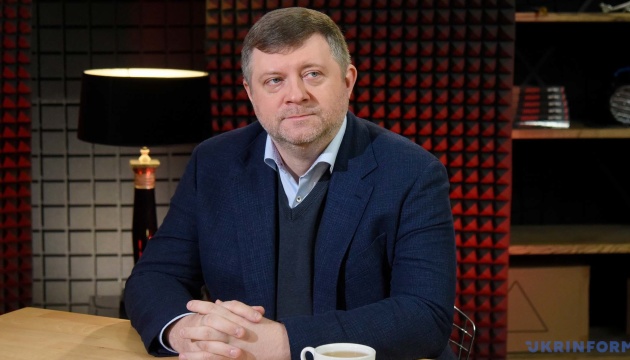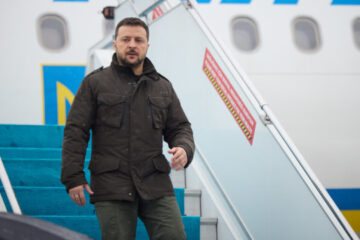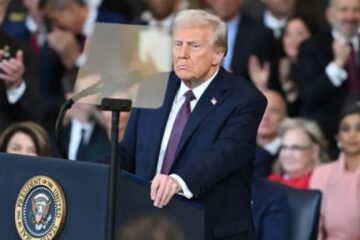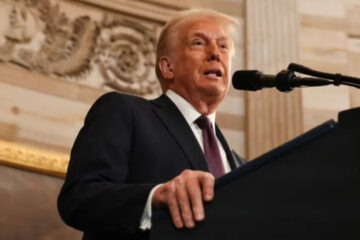Ukraine’s European integration is an issue of importance for Germany, which has been repeatedly underscored by German politicians. The progress of the process and the achievements and challenges it faces were among the matters discussed at an expert conference held this week in Berlin. Oleksandr Kornienko, the First Vice Speaker at the Ukrainian Parliament, the Verkhovna Rada, was among those who provided comments on the event.
In an interview with Ukrinform during an official visit to Berlin, Mr Kornienko discussed how Ukraine is building up contacts with international partners amid wartime, the pressure being allegedly exerted on Kyiv over elections, the “surprises” that may await us in the legislative process on the way to the EU integration, and also shared his thoughts on what to do with the parliament members who have fled Ukraine.
[embedded content]
IN GERMANY, WE HAVE TO WORK WITH ALL POLITICAL FORCES THAT SUPPORT UKRAINE AND THE UKRAINIAN PEOPLE AS A WHOLE
– Mr. Oleksandr, could you please elaborate the purpose of your visit to Berlin?
– The visit was planned before a federal election campaign kicked off [in Germany], when it emerged that snap election will be held in that country. That said, our plans were somewhat different, we had to adjust them on the fly to adapt to emerging circumstances.
The key focus was on the conference “Pathways to Progress: Germany-Ukraine Dialogue on Rule of Law for EU Accession”, and on meetings with several of our friends, particularly the chairperson of the German-Ukrainian Parliamentary Friendship Group, Robin Wagener. We had conversations with think tank analysts with influence on policy-making.
It would be wrong to say that some new topics have emerged which we had to discuss “from scratch”. For now, the European integration and the launch of new clusters are among the matters on which we are working this year, under the Polish presidency. We are also anticipating favorable decisions for Ukraine from the Danish presidency.
This also includes communication regarding the processes taking place within our partner countries, in particular, in Germany – one of the leading countries of the European Union. Let me remind you that the President of the European Commission, Ursula von der Leyen, represents Germany, and German lawmakers are very numerous and influential in the European Parliament. And of course, Germany is among the countries currently helping us the most among the EU members states, with weapons among other things, and that country is among the biggest contributors to the European Union’s Ukraine Facility program. Moreover, Germany continues pretty generous support for more than 1.1 million Ukrainian refugees who were forced to seek shelter from war.
That being said, we need to maintain persistent, sustainable work with Germany, taking due account of the political processes and the election campaign going on there. We must focus our efforts on and continue dialogue with all the “wings”, with all the political forces that, of course, are friendly to Ukraine, and, on a parallel track, work with German society to ensure it better understands what is happening, what we are fighting for, what challenges we are currently facing, what we are doing to achieve EU integration, how we are trying to be very fast and active while not changing the focus on achievements and producing the results.
The topics for discussion included post-war elections and democratic restoration. This is a topic of great importance. In Berlin, my colleagues, members of [Ukrainian] election authorities and civil society spoke out about a huge array of challenges [facing Ukraine]. Needless to say, we, in parliament, are aware of all these challenges and will be ready [to address them] as soon as the security situation permits. But we well appreciate that any pre-election preparations cannot start until after the war is terminated and a just peace is achieved in Ukraine. If that happens, we can proceed to planning and conducting the election campaigns that have been unhappily skipped.
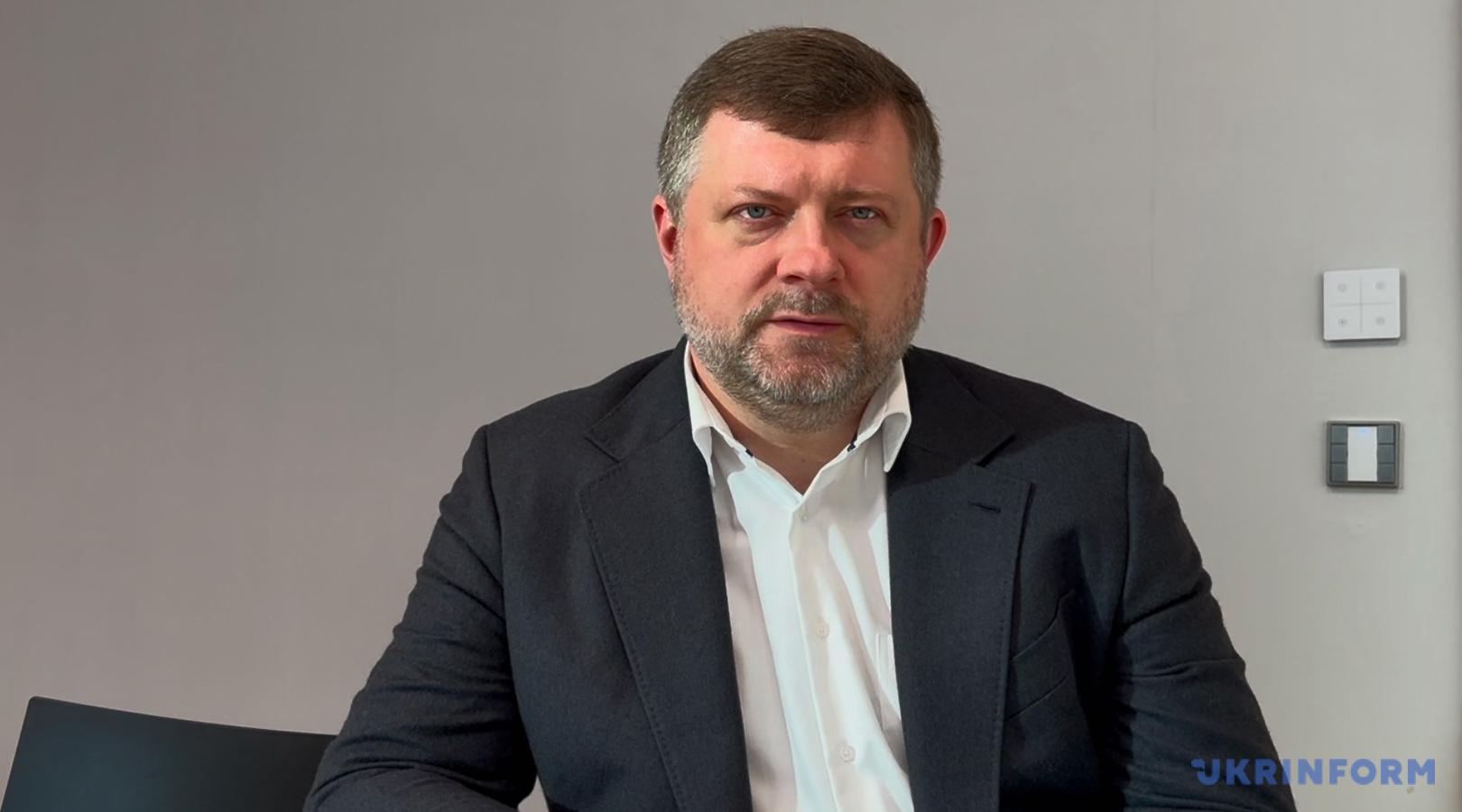
THERE ARE QUESTIONS ASKED REGARDING ELECTIONS, BUT WITH NO PRESSURE EXERTED
– Are Western partners pressuring Ukraine over the elections issue?
– No one has so far demanded anything from us, except asking lots of questions about this. We are providing our answers. At the conference, questions about potential elections were asked again. We are giving explanations for everything.
Indeed, there is Ukrainian legislation, and anyone who may be willing to figure this out would be well advised to get oneself familiarized with it insofar as it pertains to that issue. Matters of presidential and parliamentary elections, including the legitimacy of these institutions and their representatives are clearly regulated by the Constitution, the Law on Legal Regime of Martial Law and the Electoral Code.
There are miscellanious issues that remain to be addressed regarding local elections, but, I believe, we will resolve them during this year. I don’t think that there is need even for local elections to be held amid war.
We have a public opinion about this, are aware of it, that people are opposing this possibility (of holding elections – ed.). After all, those who advise holding elections should simply visit Ukraine, live for a week under bombardment of Shahed drones, with 3-5 air raid alarms raging in Kyiv and other large cities every day, under continuous bombing attacks. There can be no reasonable talk of a democratic campaign conducted under the current circumstances.
– Would you expound more about local elections?
– [In Ukraine], there is some uncertainty with respect to the local government bodies whose term in office, which is constitutionally set at five years, is nearing its expiration date. That said, most community heads and deputies have their mandates expiring in December 2025. Some small legislative amendments are needed to enable them continue in office beyond their term limits if the validity of martial law is extended beyond December 2025, thus precluding the possibility of elections.
PARLIAMENT-TO-PARLIAMENT TIES HAVE SEEN A SUBSTANTIAL BOOST DURING WAR
– Germany is on the verge of its own elections, snap elections. We are, of course, ready to keep in touch with all democratic parties…
– We have always worked this way with the United States, in France, in the European Parliament, elsewhere. We highly value the multi-party support for Ukraine and are working to ensure this support continues.
All the political forces in Germany who do not employ pro-Russian rhetoric have declared their support, in one way or another. Moreover, their representatives in the current government – I am talking about the Social Democratic Party, the Greens, the Free Democratic Party – are fully committed to supporting Ukraine. There is support also from the conservative bloc of parties – the Conservatives and the Christian Democrats. The resolutions they introduce in the Bundestag strongly promote the Ukrainian issue.
Who the German people vote for is their sovereign right, we cannot influence it. Our job, our role is to maintain relations with all the parties that are supportive of Ukraine. Basically, this is where I devoted my energies during my visit there, as did those of my colleagues who are frequent guests there. Members of the Bundestag too are frequent guests at the Ukrainian parliament. This cooperation has been set up during years, and it is going well, very well.
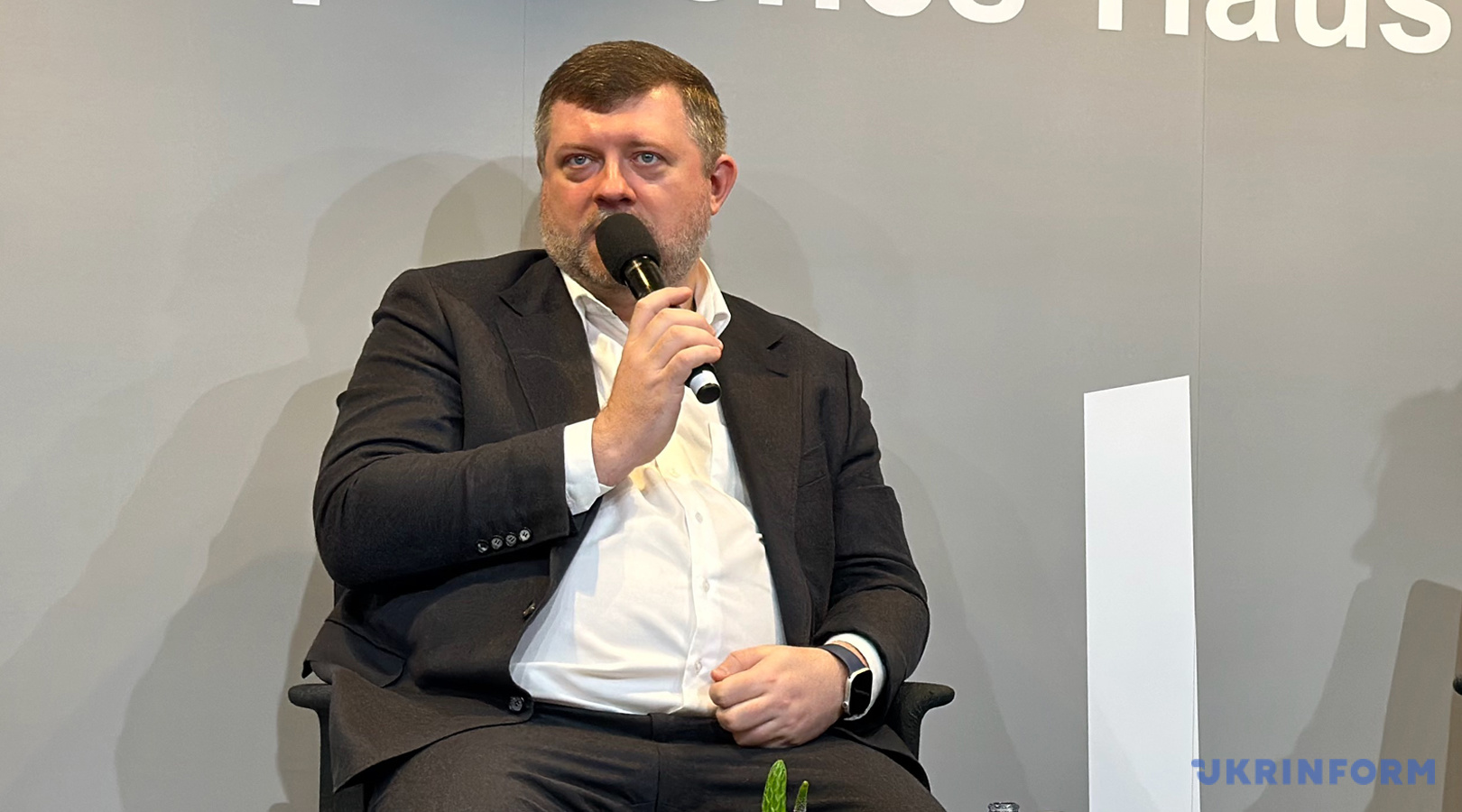
– Can parliament-to-parliament engagement go as normal amid the war ongoing?
– During the War years, our parliamentary diplomacy has substantially expanded its reach, involving more and more members of the legislature. The Ukrainian Parliament has on many occasions provided the platform for speeches by the highest international guests, amongst them the EU’s leaders, such as the President of the European Parliament Roberta Metsola and President of the European Commission Ursula von der Leyen, who both spoke from the platform several times. Members of the German Bundestag were among those who spoke from the Verkhovna Rada platform. This is all routine work.
Regarding the level and the amount of international communications, they have grown manyfold from the time prior to the full-scale invasion. Previously, Ukrainian speakers did not participate in the G7 Speakers’ Summits. Now, this happens on a regular basis; we were not among the attendees to high-level meetings in the European Parliament, in different parliaments across the world, but now we are. The Verkhovna Rada Speaker seems to have visited most parliaments in Europe and has spoken in many of them.
On a parallel track, we have expanded the scope of our cooperation with countries beyond the Western world, (it’s more of my responsibility); our delegation to the Inter-Parliamentary Union has held more than 200 meetings over the past 3 years, half of them at a high level, with colleagues from all over the world.
We have been expanding our geographical reach; I have been to Africa many times, and a large delegation is working with Latin America. Recently, Kyiv has hosted the inaugural inter-parliamentary summit with Latin America, which brough together attendees from more than a dozen states.
We are working with Southeast Asian parliaments among others. This is, of course, the European continent, the parliaments of the G7 and G20 countries, as well as parliaments of large countries. There is cooperation ongoing with India, with countries that are geographically remote from Ukraine, but which are very important.
That makes me believe that the misfortune [that happened to Ukraine] has given a push to our parliamentary work.
– How numerous is the Ukraine-Germany Friendship group at the Verkhovna Rada?
– It is one of the largest parliamentary groups, consisting of 55 members.
SECTORAL CLUSTERS CAN BE HIGHLY DEBATABLE
– The chair of a similar group in the Bundestag, Robin Wagener, said in his speech at the conference that he dreams of a Ukrainian European Parliament deputy deciding European affairs. Is this your dream too?
– Yes, indeed!
After the past three years, I think, this has already passed from the category of dreams into the category of plans: [the question is] how to plan so that it happens in 2029 rather than in parliament of 2034. That would depend on us, alongside Robin Wagener, Ursula von der Leyen, Roberta Metsola, chair of the European People’s Party group in the European Parliament Manfred Weber, alongside all of our coalition of friends.
We would like to pass this path in five years to eventually be ready to proceed to the stage of decision-making by countries. Yet, there is a certain tradition that countries decide after the elections. This must be appreciated, and perhaps this will affect us too.
But, I think, we will work to ensure that we become a member of the European Union as fast as we can, because for Ukraine this is actually a huge value and it is a choice of people, an existential one.
We also appreciate that, without economic cooperation, without expanding to other markets, which are numerous and which we are reaching, slowly but surely, such as the digital services market, for example, it will be difficult for us to advance economically at the pace we are supposed to once the security situation permits and a just peace arrives in Ukraine.
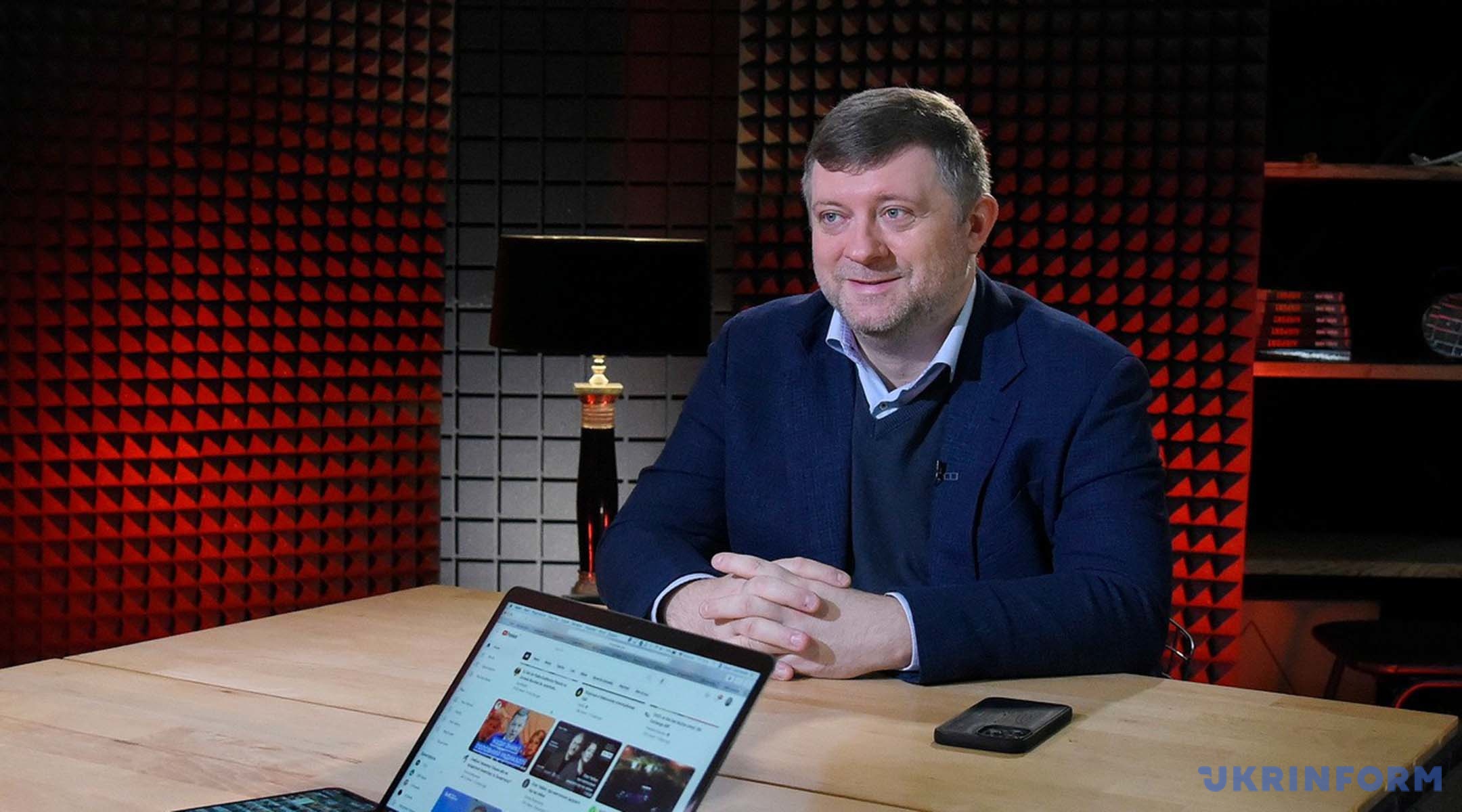
– Do you think that the legislative part of the work on European integration will be less difficult [compared to others]?
– I don’t think so. After these 5,000 acts come to be, discussions will begin on a multiplicity of different matters, different acts.
The legislation of the European Union is broad ranging, encompassing multiple areas of focus, and not all of them will easily absorb the forthcoming changes. This will inevitably be reflected in our parliamentary work.
Where there is talk about the Fundamentals (“Fundamentals of the EU accession process” cluster- ed.), we have already advanced quite far, because many reforms had been implemented before we were granted the EU membership candidate status. Some of these reforms were implemented in anticipation of the candidate status, such as the judicial reform, which is in progress, anti-corruption reform, and media reform among others.
I am expecting that sectoral clusters will cause a little more discussion. Because it will, if I can put is thus, affect certain business interests, certain big businessmen, certain well-established industries. We will have to communicate this more energetically, more ardently to the Ukrainians.
We are urging our partners (as I told the conference) to devote more focus to communication. While this is our big dream now, people become less enthusiastic upon learning some technicalities involved. Those apprehensive about the EU accession prospect will grow in numbers. We need to prevent having too many Eurosceptics (which is expected, given that they are present in the EU countries, making up to half the population), so that progress is maintained.
WE CAN INFLUENCE THE LAWMAKERS WHO FLED THE COUNTRY WITH NOTHING BUT THE TOOL OF APPEAL
– If we are already talking about business interests… This may also affect the interests of policy makers, particularly those in parliament. You’ve said recently that 8.5 percent of the 9th convocation Verkhovna Rada members have been notified of suspicion. Could you please give your comment?
– I didn’t take this from nowhere, but learned this info from Chesno [public organization promoting fair elections in Ukraine]. Notices of suspicion have been served to at least five dozen members of parliament, according to Chesno. My calculator said that this amounts to 8.5 percent. It’s as simple as that.
Look, it is perhaps inappropriate to look at such cases from the perspective of pure statistics, because each suspicion involves a case that needs independent consideration. The suspicion can involve submitting false information in income declaration, and a person appealed against this and won. There can be a suspicion of treason (we have such cases in the current convocation, unfortunately). Such cases need a competent investigation to be carried out, brought to a verdict to make sure our disrespectful former colleagues are held accountable. There can be a suspicion of corrupt conduct, which needs to be addressed by the counter-corruption system, and the Supreme Anti-Corruption Court needs to pass its verdict.
This substantial number of notices of suspicion served is in part because previously, it took a series of votes in parliament to issue a notification of suspicion to a particular lawmaker. It was not easy to do because of unwillingness of other lawmakers, which was often the case. Now that people’s deputies have been stripped of immunity from prosecution, this happens automatically without the Chamber’s involvement.
– How to make the people’s deputies who have left the country unlawfully return to Ukraine?
– This is definitely a job to be done by the law enforcement system, because we, as members of the Verkovna Rada Presidium, have no other means available to us but to appeal: we call on the deputies suspected of wrongdoing by law enforcers to return to Ukraine from wherever they’ve been, answer the questions put to them, or at least contact Law Enforcement or Investigations.
Such conduct is unworthy of a people’s deputy.
– How many people are we talking about?
– I understand that there are not many of them, two or three are currently on the wanted list.
– You’ve said recently that journalists will not be able to attend parliament sessions until after the reporters’ boxes have been furnished with bulletproof glass walls. When this may happen, and reporters will be allowed back into the Parliament Hall?
– It depends on the security situation as we always say. It is not us who determine whether the situation is secure enough or not. As soon as the security situation permits, journalists will be allowed back to parliament.
– In closing, what would you like to say to the readers?
– When addressing voters, the readers, we are always saying: help the frontline warriors, support the guys, donate. We are doing this too.
Be enthusiastic about the European integration, look at how it is, what it is, learn about it, because this is the banner under which many moments of our lives will be lived.
May the year 2025 see the end to the war and a just peace in Ukraine!
Interviewed by Olha Tanasiychuk, Berlin
Source: Oleksandr Kornienko, Senior Vice Speaker of the Verkhovna Rada of Ukraine

